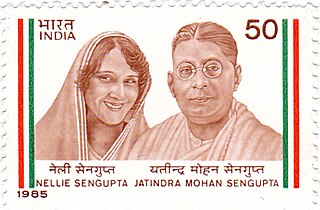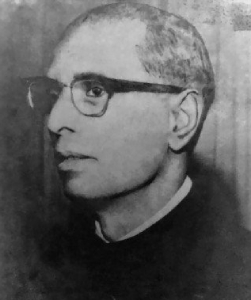Related Research Articles

Chittagong, officially Chattogram, is the second-largest city in Bangladesh after Dhaka and third largest city in Bengal region. It is the administrative seat of the eponymous division and district. It hosts the busiest seaport on the Bay of Bengal. The city is located on the banks of the Karnaphuli River between the Chittagong Hill Tracts and the Bay of Bengal. The Greater Chittagong Area had a population of more than 5.2 million in 2022. In 2020, the city area had a population of more than 3.9 million. Even amidst heightened global uncertainty, Bangladesh has consistently demonstrated a robust history of growth and advancement.

The Bengal Presidency, officially the Presidency of Fort William in Bengal and later Bengal Province, was a territorial unit of British India. It was the largest presidency among all the presidencies of British India. At the height of its territorial jurisdiction, it covered large parts of what is now South Asia and Southeast Asia. Bengal proper covered the ethno-linguistic region of Bengal. Calcutta, the city which grew around Fort William, was the capital of the Bengal Presidency. For many years, the Governor of Bengal was concurrently the Governor-General of India and Calcutta was the de facto capital of India until 1911.

Moudud Ahmed was a Bangladeshi lawyer and politician. He was a standing committee member of Bangladesh Nationalist Party. Ahmed was elected as a Jatiya Sangsad member total five times from Noakhali-1 and Noakhali-5 constituencies.

Maulana Azad College is a public institute of liberal arts, commerce and science in India, located in central Kolkata, West Bengal, India. The college is fully government-administered. It is located near the junction of Rafi Ahmed Kidwai Road and SN Banerjee Road, popularly called "Lotus crossing".
The Ispahani family, also known as the House of Ispahani, are a Perso-Bengali business family. In Bangladesh, they own and manage M. M. Ispahani Limited, one of the country's leading conglomerates. Originally hailing from Isfahan, Iran, the family have been settled in the Indian subcontinent for more than two centuries.

Nellie Sengupta was an Englishwoman who fought for Indian Independence. She was the first woman Alderman for Calcutta and was elected president of the Indian National Congress at its 48th annual session at Calcutta in 1933.

Mohammad Abul Kashem is generally considered as a pioneer and the architect of the historic Language Movement of Bangladesh. He was also a politician, author and an eminent educationist. He founded the Islamic-oriented Bengali cultural organisation Tamaddun Majlish.

Fazlul Quader Chowdhury was a Bengali politician who served as the 5th speaker of the National Assembly of Pakistan from East Pakistan. He belonged to Ayub Khan's Convention Muslim League. He was also the Acting President of Pakistan from time to time when Ayub Khan left the country. His elder brother Fazlul Kabir Chowdhury was the leader of the opposition in East Pakistan assembly. Quader was preceded by Maulvi Tamizuddin Khan of Awami League.

Habibullah Bahar Chowdhury was a Pakistani politician, journalist, sportsman and writer from erstwhile East Bengal, now Bangladesh, who served in the political spheres of British India and Pakistan.
Major Abdul Gani was a Bengali Muslim military officer, who is considered the co-founder of the East Bengal Regiment.

Mustafizur Rahman Siddiqi was a Bangladeshi entrepreneur, politician and diplomat. He set up a number of manufacturing and finance businesses during the 1960s. He played a prominent role in the Bangladesh Liberation War of 1971, organising resistance within Bangladesh and travelling to the US to represent the Bangladesh Government in exile. He became Minister of Commerce and Foreign Trade in the newly formed state, and ambassador to the US and Mexico.

Bulbul Chowdhury, real name Rashid Ahmed Chowdhury, was a Bengali dancer of British India, and later East Pakistan. He is primarily regarded as a pioneer of modern dance in Bangladesh, as a founding figure of dance among the conservative Muslim community.
Mashiur Rahman (1920–1971) was a Bangladeshi lawyer and politician, a member of the East Bengal Legislative Assembly and cabinet minister in the East Pakistan government of Ataur Rahman Khan. He was instrumental in the founding of the Bangladesh Awami League and in the Bengali Language Movement, and supported Sheikh Mujibur Rahman.

Zahur Ahmad Chowdhury was a Bangladesh Awami League politician and a former Minister of Health and Family Welfare.
Ashrafuddin Ahmad Chowdhury was a Bengali politician who had served as general secretary of the Congress Party's Bengal branch, member of the East Bengal Legislative Assembly and later as the Education Minister of Pakistan. He was an advocate of Huseyn Shaheed Suhrawardy's United Bengal proposal.
Ahmed Ali Enayetpuri was a Bengali writer, journalist, and politician.
Karāmat ʿAlī Jaunpūrī, born as Muḥammad ʿAlī Jaunpūrī, was a nineteenth-century Indian Muslim social reformer and founder of the Taiyuni movement. He played a major role in propagating to the masses of Bengal and Assam via public sermons, and has written over forty books. Syed Ameer Ali is among one of his notable students.

Ḥāfiẓ Aḥmad Jaunpūrī was an Indian Muslim scholar, religious preacher and social worker. As the son and successor of Karamat Ali Jaunpuri, he led the Taiyuni reformist movement in Bengal.

Nesaruddin Ahmad was a Bengali Islamic scholar, spiritual reformer, educationist and writer. He was the main disciple of Furfura Sharif's Mohammad Abu Bakr Siddique in eastern Bengal. Ahmad was the inaugural Pir of Sarsina, having founded the Sarsina Darbar Sharif and Darussunnat Kamil Madrasa in 1915, one of the largest Islamic institutions in South Bengal and the first major alia madrasah after Calcutta. Ahmad was among the leading Islamic leaders in colonial Barisal, and his influence extended across Bengal. The Nesarabad Upazila of Bangladesh has been named after him.

Abū Naṣr Muḥammad Waḥīd, or simply Abu Nasr Waheed, was a Bangladeshi Islamic scholar, educationist, author and politician. He is best known for his reformations to Islamic education in Bengal, and development of Arabic language education among Bengali Muslims. Wahid also served as the Education Minister of British Assam and a member of the Assam Legislative Assembly.
References
- 1 2 3 4 5 6 7 8 9 10 11 12 Momtaz, Ahmad (18 June 2021). "Ahmad, Nur". en.banglapedia.org. Banglapedia. Retrieved 2021-11-12.
- ↑ "List of members of the 2nd National Assembly of Pakistan" (PDF). na.gov.pk. Retrieved 12 November 2021.
- 1 2 Mannan, Abdul. "When History is not on your Side". archive.thedailystar.net. Star Weekend Magazine. Retrieved 2021-11-12.